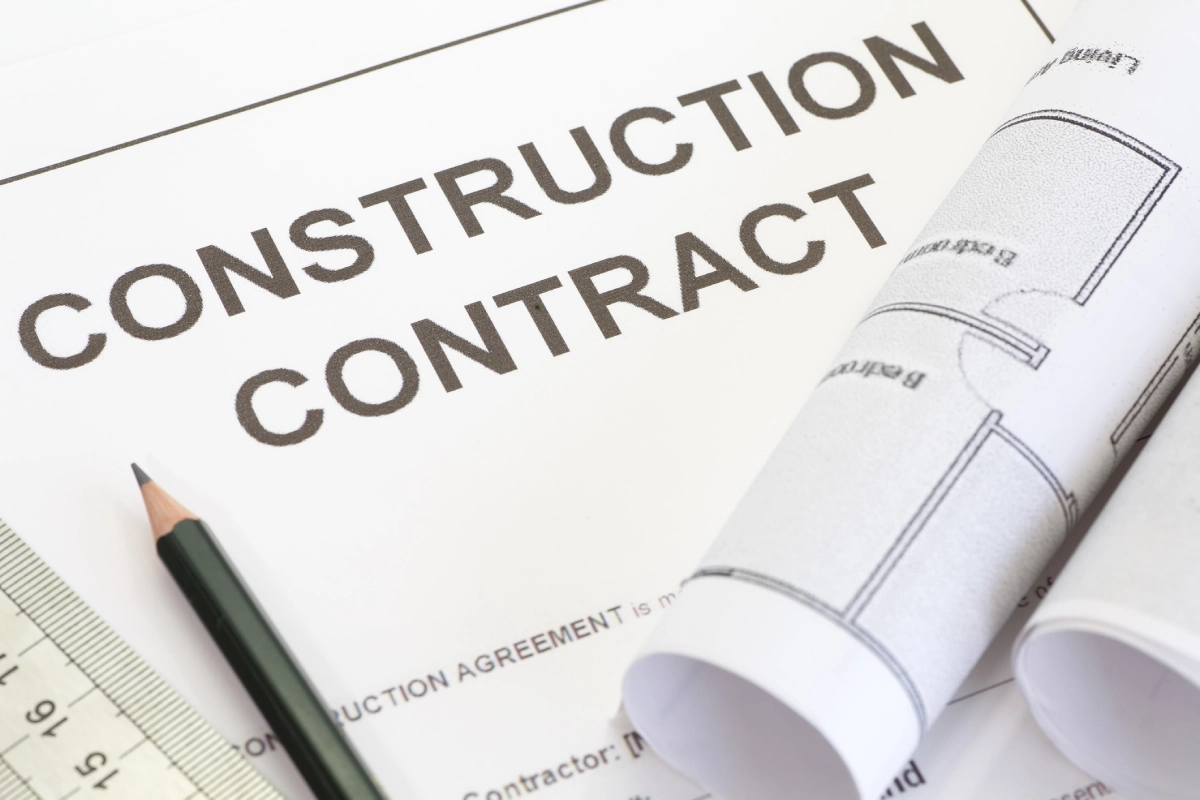
A new construction project can be incredibly exciting to pursue. It can be something as complex as adding a whole new room to your house or a basic job that may take less than a day to complete.
Either way, you want to hire a company that exemplifies good workmanship and doesn’t try to undermine you via the construction contract. There are many common pitfalls that can exist within these documents, either intentionally or unintentionally from the general contractor. Given the magnitude of some of these jobs, it’s always a good idea to be aware of what to look for and to contact a construction law firm just in case.
Understanding Building Contracts
A construction contract is a binding legal agreement between all of the parties involved. This typically includes the owner of the property, the construction company, and any subcontractors. These contract documents have numerous sections, all of which are vital.
- Timeline: The paperwork should include a detailed project timeline of when the work should be completed and contingencies if there are any project delays.
- Scope of Work: This is one of the most important contract terms, as it lays out precisely what the construction team will work on, including specifications and materials.
- Payment Terms: Construction contracts will state how much the homeowner owes the construction company, including a payment schedule if one is desired. It may also lay out how additional costs are handled, such as whether the construction company needs permission if they expect the project to go over the allotted budget.
- Change Orders: A lengthy project may necessitate change orders, which state how the homeowner and company will handle any alterations needed to the initial contract.
- Dispute Resolution: If a disagreement emerges, the contract breaks down whether all parties involved will seek out arbitration or mediation before turning to lawyers.
- Insurance Requirements: In the interest of risk management, both the homeowner, contractor, and any subcontractors should have a minimal amount of insurance in case anything happens.
- Warranties: The contract should also describe what kind of warranty the contractor offers on their work so that the homeowner is covered if something breaks within the allotted amount of time.
There are many other subcategories that can exist within one of these contracts. Above all else, it’s critical to read everything carefully to ensure nothing is missing. If you need to, you can have a construction lawyer review the documentation to offer any recommendations or changes if something is amiss.
Common Pitfalls in Construction Contracts
Construction industry contracts can sometimes be filled with common mistakes. This isn’t always necessarily the contractor trying to pull one over on the homeowner. Sometimes, it’s a simple oversight, and if everything goes according to plan, any oversights may not even be a problem.
However, it always pays to be safe than sorry, especially when dealing with the hazardous profession of construction when it’s occurring on your property. That’s why you want to keep an eye out for the following issues and correct them before work begins.
A Handshake Agreement
A crucial piece of legal advice is that you never want to rely on something that isn’t in writing. Many contract disputes come up because the homeowner and construction team agree on something verbally without writing it down. This is particularly important when it comes to change orders. It’s time-consuming to alter an already-written agreement, but it’s better to have everything on paper and signed before proceeding.
Unclear or Unrealistic Timelines
For particularly lengthy construction projects, there should be a clear timeline of when everything should be completed. This may also include the addition of milestones so that you can be certain the project is moving along as it should. However, homeowners need to be mindful of timelines that seem too quick. You want the team to take its time so that they don’t cut any corners, so make sure the completion date is reasonable above anything else.
Imprecise Language
All parties involved should understand what each term means. If some language requires further clarification, then the definition should be written into the contract so that any legal parties examining the contract after the fact can also comprehend what certain words and phrases mean.
No Discussion of Contract Retentions
Retention clauses help ensure a project is completed by the aforementioned timeline. This part of the contract also includes information about the homeowner withholding part of the money until the project is finished. Otherwise, a construction could forego your project for an unspecified length of time, meaning you’re left with unfinished construction on your property.
Relying on Free Contract Services
No two construction projects are the same, yet many people resort to free construction contract paperwork online to set up the agreement. It’s possible these templates won’t have everything you need to ensure your project is covered no matter what. It may cost a little extra money, but it’s a good idea to get such documentation reviewed by an attorney to ensure nothing’s missing.
Tips to Avoid Common Pitfalls
First and foremost, you should read the construction contract in full. If there’s anything that’s confusing to you, it’d be recommended to seek clarification and make that section easier to understand in the paperwork. From payment clauses to terms regarding breach of contract, something that’s confusing to you could be confusing in a court of law, so you don’t want to leave anything to change.
You also want to ensure all of the sections mentioned above regarding the understanding of building contracts are present. A construction company may overlook adding change orders or dispute resolution. Additionally, you want to make sure the company has sufficient insurance to cover anything that could feasibly go wrong for your particular job.
When in doubt, get the paperwork reviewed by a construction contract attorney. Construction contract mistakes aren’t always a sign the company plans on doing subpar work. It could be a simple oversight, and getting a lawyer involved ensures there are no gray areas.
What Can Lawyers Do to Help Me?
If you run into any issues or disputes with a contract during your construction project, we’re here to help. Don’t hesitate to contact Estavillo Law Group when you need support with an existing contract.


